How to Fight Drug Charges: Effective Defense Strategies
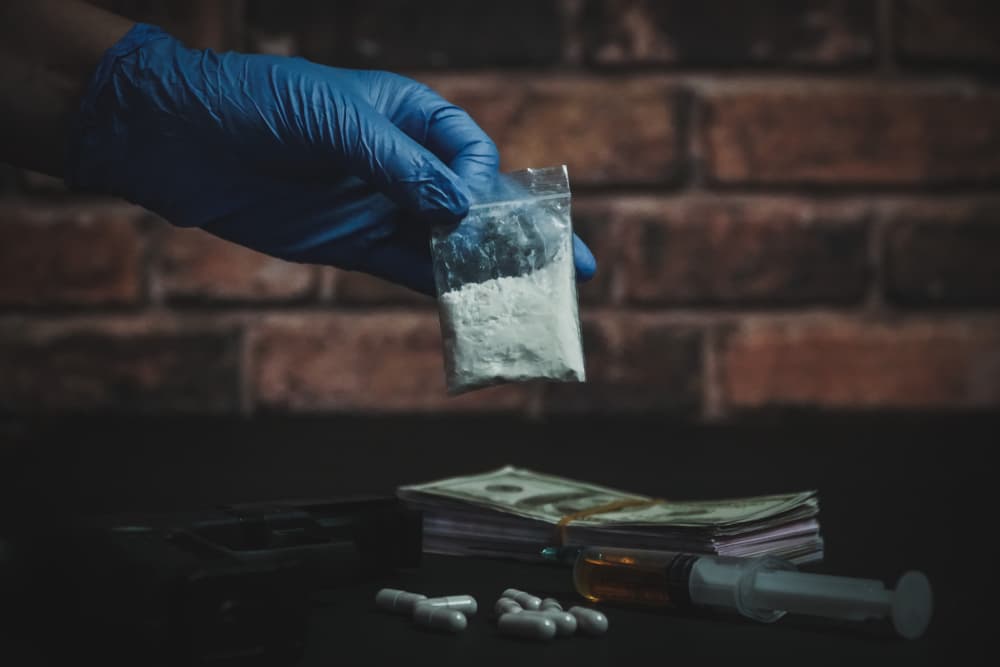
An arrest for a drug crime can make you feel like your world is ending. Whether the charge is for possessing a small amount of a substance or something much more serious, the thought of a conviction is scary. You might worry about going to jail, losing your job, and getting a criminal record that can follow you for the rest of your life.
When facing these kinds of charges, it is easy to feel hopeless. You might think that if the police find something, the case ends. That is not true. An arrest is not a conviction. The law gives you rights, and there are many ways to fight a drug charge. Having the right help is the first and most important step you can take.
Hiring an experienced drug crimes defense attorney in Los Angeles, CA can make a huge difference. A good lawyer knows how to look at every case detail to find weaknesses in the prosecutor’s arguments. This article will explain some common defense strategies a lawyer can use to fight for you. This is not legal advice for your specific case, but a general guide to show you that there is hope and that a strong defense is possible.
Key Takeaways
-
Drug charges in Los Angeles can range from simple possession to serious felony offenses, but an arrest does not equal a conviction.
-
A skilled drug crimes defense attorney can challenge illegal searches, invalid warrants, or unreliable lab evidence to weaken the prosecution’s case.
-
California offers diversion programs and drug courts focused on treatment rather than punishment, often allowing defendants to avoid a conviction.
-
Even if dismissal isn’t possible, an attorney can negotiate plea deals, reduce felony charges, or secure probation instead of jail time.
-
Having an experienced lawyer is critical to protect your rights, build a strong defense, and pursue the best possible outcome in your case.
Challenging the Evidence: The Foundation of Your Defense
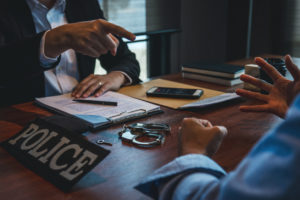
Evidence builds every drug case. If your attorney shows that authorities gathered the evidence against you illegally or is unreliable, the prosecutor’s case can fall apart. This is often the strongest way to fight a drug charge.
Was the Search Legal?
You have a right to be free from unreasonable searches and seizures. This means the police cannot search your person, car, or home whenever they want. They usually need a very good reason or a search warrant signed by a judge.
A drug crimes defense attorney will carefully look at every detail of how the police found the drugs.
- Did they have a warrant? If so, was the warrant properly written and based on good information?
- If they did not have a warrant, did the situation fit one of the specific exceptions to the warrant rule? For example, were the drugs in plain sight?
- Did you give them consent to search? If so, were you pressured or tricked into giving consent?
If a lawyer finds the search illegal, they can file a “motion to suppress” with the court. This is a formal request to have the illegally obtained evidence thrown out. If the judge agrees, the prosecutor cannot use that evidence against you. This often causes the court to dismiss the charges. According to the American Civil Liberties Union (ACLU), knowing your rights during a police encounter is a key protection.
Did the Police Have a Valid Reason to Stop You?
One of the first things a defense attorney will investigate is the initial police encounter itself. The law is clear that a police officer cannot stop and detain you for no reason. To lawfully stop you, an officer must have “reasonable suspicion.” They must point to specific facts or circumstances that convince a reasonable person that a crime may have been committed, is being committed, or is about to be committed.
An officer cannot stop you based on a hunch, a guess, or your appearance alone. They need a real reason. For example, perhaps they saw someone who matched the exact description of a suspect in a recent robbery. Or maybe they observed someone trying to pry open the window of a closed business. The reason must be something they can explain to a judge later.
An experienced criminal defense lawyer will look very closely at the official police report to see what reason the officer gave for stopping you. They will review any available bodycam footage to see if the video matches the officer’s written report. If the reason for the stop seems weak or untrue, your lawyer can argue that the stop was illegal. If a judge agrees that officers stopped you without reasonable suspicion, the court can exclude any evidence they found during that stop. This is because the evidence is considered the “fruit” of an illegal stop, and the law does not allow the prosecution to benefit from police misconduct. This often causes the court to dismiss the case entirely.
Is the Evidence Even Yours?
To convict you of drug possession, the prosecutor must prove that you knew about the drugs and had control over them. This is not always easy for them to do.
- Knowledge: If you borrowed a friend’s jacket or were in a friend’s car, you might not have known drugs were in the pocket or glove box. If you did not know about the drugs, you cannot be guilty of possessing them.
- Control: If you live in a house with several roommates and drugs are found in a common area like the living room, whose did they belong to? A good defense attorney can argue that the drugs were not yours and that other people had access to that area.
Were There Lab Errors?
When police find a substance they think is an illegal drug, they must send it to a crime lab for testing. Your attorney can challenge the lab’s findings.
- Chain of Custody: The lab must prove that the substance they tested is the same one the police found. They do this by documenting the “chain of custody,” which tracks who handled the evidence at every step. Any break in this chain can make the evidence unreliable.
- Testing Errors: Lab equipment can make mistakes, and technicians can fail to follow proper procedures. A skilled lawyer can review the lab’s records and challenge the accuracy of the test results.
Alternatives to a Conviction: Diversion and Drug Courts
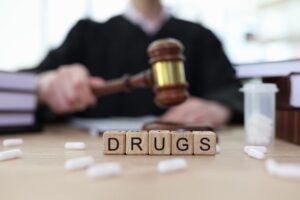
For many people, especially those facing charges for simple drug possession, the goal is not just to avoid jail but to avoid a conviction altogether. The state has created special programs that focus on treatment instead of punishment.
What Are Diversion Programs?
The state has recognized that sending nonviolent drug users to jail is not always the best solution. It can be very expensive and may not address the root problem of addiction. Because of this, the law allows for diversion programs for nonviolent drug possession offenses.
A diversion program “diverts” you from the traditional court system into a community-based treatment program. The goal is to provide the support necessary to overcome addiction. Completing the program often leads the court to dismiss the charges against you. This means you do not have a criminal conviction on your record, which can protect your future opportunities for jobs and housing.
Are You Eligible for Diversion?
Eligibility for these programs is often mandatory for people charged with simple possession, as long as they don’t have certain disqualifying factors. A criminal defense lawyer can determine if you are eligible. You may face disqualification if:
- You have a prior conviction for a serious or violent felony (a “strike”).
- They also charged you with other crimes unrelated to drugs.
- A firearm was involved in your current case.
- You refuse to participate in a treatment program.
An experienced drug crimes defense attorney can argue to show a judge that you are a good candidate for diversion.
How Drug Courts Work
Drug courts are another alternative to traditional prosecution. Special courts handle cases involving people struggling with addiction. The goal is rehabilitation.
A drug court program is highly structured. It usually involves:
- Regular drug testing.
- Individual and group therapy.
- Frequent check-ins with a judge.
- A system of rewards for doing well and sanctions for slipping up.
The state has created laws that allow for pre-guilty plea drug court programs. In this program, you do not have to plead guilty first. Instead, the court suspends the criminal proceedings while you participate. The court dismisses the charges if you complete the program. This great outcome allows you to get help and keep your record clean.
Reducing the Penalties: Mitigation and Negotiation
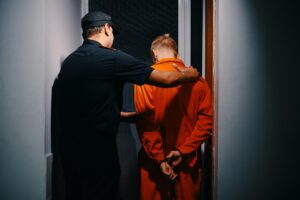
If your case cannot be dismissed and you are not eligible for a diversion program, your attorney will focus on getting you the best outcome possible. This means fighting to reduce the penalties you face.
Arguing for Leniency: Using Mitigating Factors
Judges often have the power to be lenient if there are good reasons. The law allows a judge to strike or reduce certain punishments if there are “mitigating circumstances.” These facts about you or your situation make the crime less serious.
The law lists factors a judge should consider when imposing additional punishment. These can include whether you:
- Are homeless or living in a shelter.
- Are addicted to or dependent on drugs.
- We’re only trying to get drugs for your use, not to sell.
A good criminal defense lawyer will not just focus on the facts of the crime. They will work to present you as a whole person to the judge and prosecutor. They will highlight any struggles you have faced, like addiction or poverty, to argue for a more compassionate sentence.
Negotiating a Better Deal
The truth is that most drug cases do not end in a trial. A plea agreement often resolves them. This is a deal that your criminal defense lawyer negotiates with the prosecutor. In a plea agreement, you might agree to plead guilty to a lesser charge in exchange for a lighter, more predictable sentence. This process helps you avoid the risk and uncertainty of going to trial, where the outcome is never guaranteed.
Negotiating is a skill, and it is one of the most important jobs a lawyer has. An experienced attorney doesn’t just ask the prosecutor for a good deal; they create reasons why the prosecutor should give one. They do this by finding the weak spots in the prosecutor’s case. For example, your lawyer might point out that the evidence from the traffic stop is shaky or that there are issues with the lab report.
Your lawyer creates leverage by showing the prosecutor that they might lose the case at trial. This makes the prosecutor more willing to offer a favorable deal to secure a conviction, even for a lesser offense.
A “better deal” can mean many things. Your attorney can:
- Get a felony charge reduced to a misdemeanor, which greatly impacts your future.
- Get a “possession for sale” charge reduced to “simple possession,” which carries much lower penalties.
- Arrange for a sentence that involves treatment and probation instead of jail time.
An experienced drug crimes attorney understands the local courts. They know the prosecutors and the judges, and they know what kinds of arguments are most effective. They will get the best offer possible, explain all the pros and cons, and give you the advice you need to make the best decision for your own life.
Why You Need a Skilled Defense Attorney
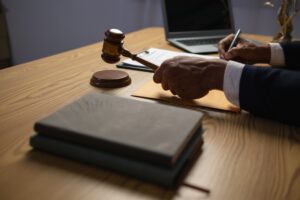
The legal system is not a level playing field. The government has nearly unlimited resources to prosecute you. You need someone with skill and experience in your corner to fight back.
Facing a Dedicated Prosecutor
In more serious drug cases, the state may use a tactic called “vertical prosecution.” This means that one highly qualified prosecutor is assigned to your case and handles it from the very beginning to the end. The law allows for this method of enhanced prosecution for major drug cases.
When you are up against this kind of dedicated effort, you need a defense attorney who is just as prepared. You need a lawyer who can match the prosecutor’s skill and resources.
An Arrest Is Not a Conviction
Being arrested for a drug crime can feel like the end of the road, but it is not. It is the beginning of a legal process, and you have the right to fight for your freedom and your future. There are many ways to challenge the evidence, and some programs offer a second chance.
You do not have to face this alone. The most important step you can take is to contact an experienced criminal defense law firm immediately. They can protect your rights, explore every possible defense, and work to get you the best possible outcome.


